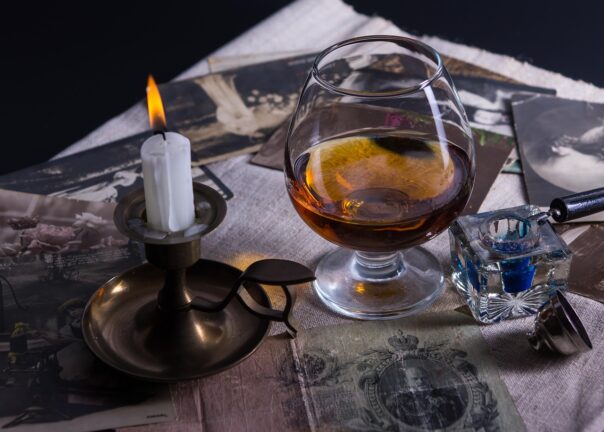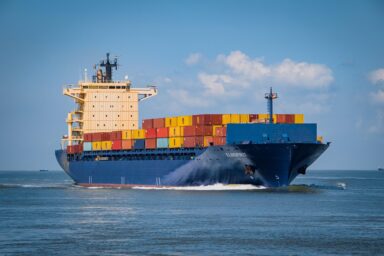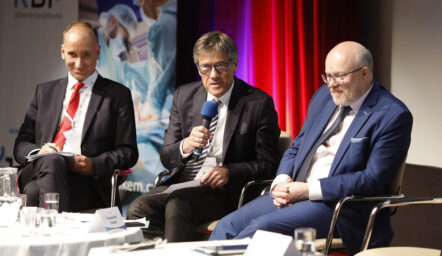As the EU and the US finalise a trade deal set to take effect on Friday, France finds itself torn between public defiance and private desperation. President Emmanuel Macron insists Brussels should have wielded the bloc’s economic heft more assertively, while French ministers and corporate titans scramble to shield the country’s €12.1 billion alcohol-export industry from punishing new US tariffs.
The deal, struck on Sunday, will impose a 15 per cent tariff on most EU goods entering the US. While aircraft, some chemicals and pharmaceuticals, and natural resources secured exemptions, wines and spirits remain in limbo. France – which accounts for 41% of EU alcohol exports – is fighting to exclude its champagne, cognac and other drinks. In 2024, it shipped €12.1 billion worth of alcoholic beverages outside the bloc, two-thirds of it wine. Nearly a third of these exports go to the US. Italy, the EU’s second-largest alcohol exporter with €6 billion in annual sales, has joined the push.
The carve-out chess game
Progress is patchy. “We seem to be more advanced on spirits than on wines,” an EU official told Financial Times. France’s junior trade minister Laurent Saint-Martin claimed “spirits are indeed exempted,” but confusion reigns. US officials insist no alcohol carve-outs exist. The discrepancy stems from conflicting factsheets: Brussels and Washington disagree on steel tariffs and pharmaceuticals, while omitting beverages entirely. A joint statement due Friday may clarify matters.
Mr Macron has blasted the agreement as a failure of EU nerve. “We need to be feared. We weren’t feared enough,” he told ministers, according to an official quoted anonymously by Politico. Though conceding the deal brought “short-term clarity,” he argued it fell short of leveraging Europe’s single market. His prime minister, François Bayrou, branded it a “dark day” for Europe – a stark contrast to German and Italian leaders who welcomed the pact as preferable to Trump’s threatened 30 per cent tariffs.
Even as Mr Macron postured, his government lobbied furiously behind the scenes. Finance minister Éric Lombard argued aviation’s exemption “should apply to spirits,” while trade and Europe ministers urged the Commission to threaten retaliation using the bloc’s Anti-Coercion Instrument. This tool could restrict US firms’ access to EU public contracts and financial markets.
You might be interested
Industry on edge
For French vintners and distillers, the stakes are existential. Bernard Arnault, billionaire owner of LVMH – whose Moët Hennessy division generates seven per cent of group sales – has personally lobbied Trump and Brussels. In a Les Echos op-ed, he warned the deal leaves wines and spirits in “great uncertainty,” urging clarity. LVMH dominates champagne with brands like Veuve Clicquot and controls 40 per cent of the global cognac market through Hennessy.
Rivals face acute exposure. Rémy Cointreau derives 55 per cent of sales from cognac; Pernod Ricard could see its Jameson whiskey and champagne lines hit. “A catastrophe has been avoided, but the coming days will be crucial,” said France’s wine and spirits exporters’ association.
We need to be feared. We weren’t feared enough. – Emmanuel Macron, President of France
The sector has already absorbed body blows. When Mr Trump threatened 200 per cent tariffs in March, shipments halted for a month. April’s 10% duty – now superseded by the 15% rate – cut sector turnover by 12%, per CEEV, a trade group. A weak euro-dollar exchange rate compounded losses. “No new investments and a lot of nervousness” have followed, said CEEV’s Ignacio Sánchez Recarte.
Champagne, Cognac hanging in the balance
France’s angst reflects deeper EU tensions. While Germany prioritised shielding its export engine, Mr Macron pushed a tougher line – despite France itself relying on US demand for €4 billion in annual alcohol sales. The pact’s terms sting compared to post-Brexit Britain’s 10% tariff deal, fueling perceptions of EU weakness.
Yet Commission officials defend the agreement as damage limitation. They note it halves Mr Trump’s initial 30 per cent threat and exempts key industrial sectors. Critics retort that ambiguity on alcohol – previously taxed at just $0.06 per litre for wine and $0.20 for sparkling varieties – undermines these gains.
With Friday’s deadline looming, negotiators are racing to codify exemptions. For France, the fates of its vineyards and distilleries hang in the balance. As Mr Macron vowed, “the story isn’t over.” But with Washington poised to enact tariffs by presidential executive orders, Paris’s window to rewrite the ending is narrowing. In the vineyards of Champagne and Cognac, growers await clarity – and pray their government’s twin strategies of bluster and backroom dealing finally align to uncork a better future.










